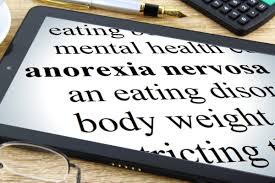Money and happiness

Money. It makes the world go round, doesn’t it? Without it, we can’t usually buy things, do things, or experience things. With it, we can do a lot of these, and perhaps have something a lot of people would like to have – the ability to not to have to worry about it.
When it comes to personal finance, people are usually dependent on working to gain an income. Some people may think that a job is just a job, and others may think that it is the opportunity to have a career. Either way, the salary from it leads to a financial situation that people become accustomed to it.
There is the age-old question of does money buy you happiness? The answer, generally, is ‘no’, but it can buy you a lot of other things! The Channel 5 television show ‘Rich House, Poor House’ is a good example of how happiness isn’t just made up of how much is, or isn’t, in your bank account. The show follows two families for a week while they swap lives – a rich family with a disposable income of usually over £1000 a week swaps lives with a poor family, who’s disposable income is often less than £100 a week. Along the way, they find out more about each other’s lives and how they got to be in the rich or poor position they are in, but it’s the emotional journey that is also focused on. Throughout the week, as well as understanding how the other half live, families often talk about how great it’s been to spend time with their loved ones. The rich, temporarily poor, families often make up free games to play with their children and have a great time. Of course, both families are usually happy to go back to their normal lives at the end of the week, but both usually come away with inspiration for how they may both change their lifestyles. For many of the poor families, it’s trying to change their current circumstances by doing an academic or practical course, or trying to do more in their aspiration to earn money from their own potential business. Many times for the rich family, it’s more to do with realising how they can help others, and also to not spend so much time focusing on their work.
Money is important for many things we do in our lives, but what I find interesting is how little money is focused on at school. At the very start of people’s lives, it is only learnt about if parents and other caregivers talk to children about it, as it is largely not focused on in schools. Many people say that things like personal spending budgets, tax, pensions, shares and many other related areas are generally not taught in schools, but why is that? If society puts so much emphasis on money, in one way or another, why is it not compulsory to learn about it from a young age? Like most things nowadays, there are ways to educate ourselves about money, but hopefully it will be compulsory to learn about it for the future generations.
I find programmes like ‘Rich House, Poor House’ very interesting as it’s a way of comparing and contrasting people when their only major difference is their bank balance because it puts a spotlight on an important part of life. It’s interesting that such a huge emphasis is put on money in all parts of life, however subtlety, but it’s still not something people talk about, either at all or at least honestly. Why is that? Is it because it is one of the major ways people can compare each other that isn’t due to personal characteristics? Is it because people put such a huge value of success onto money? Perhaps. But as money doesn’t buy happiness, surely happiness equals success in the long run?
Sarah Keeping MBPsS MSc PgDip GDip BA (Hons) Cert HE
Follow Sarah on twitter at @keepingapproach
References



